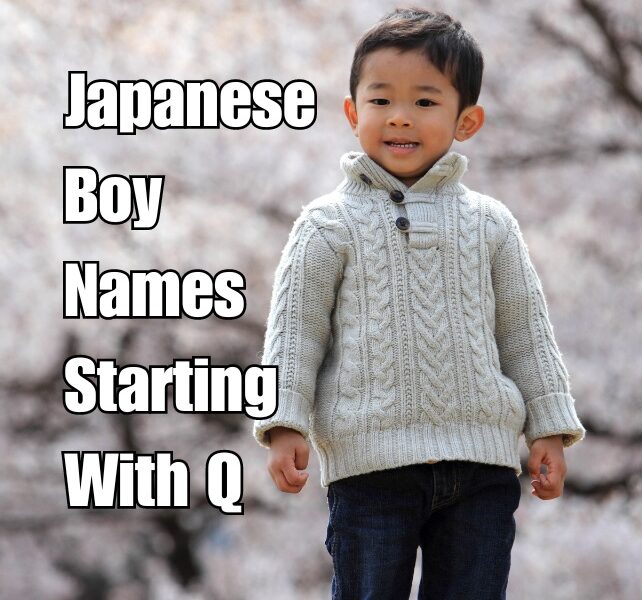Last Updated on January 2, 2025 by Emma
Exploring the heritage and cultural significance of last names can provide a unique insight into a country’s history and societal norms. In Mexico, surnames are not just identifiers but carry deep familial and regional histories. This article delves into 100 Mexican last names starting with the letter ‘P’, showcasing their origins and meanings. These surnames are woven into the fabric of Mexican society, each telling its own story of ancestry, region, and lineage. From common names that populate cities and towns to unique identifiers of ancient lineages, each name carries a weight of history and pride.
100 Mexican Last Names That Start with P
The letter ‘P’ marks the beginning of many surnames that are quintessentially Mexican, reflecting a range of influences from indigenous to Spanish. This collection of last names starting with ‘P’ offers a glimpse into the diverse tapestry of Mexican culture. Each name not only links to a family’s past but also to the etymological roots deeply embedded in the broader Hispanic naming conventions. Below, we present these surnames in a structured table format, listing both the names and their meanings to enrich understanding and appreciation.
| Last Name | Meaning |
|---|---|
| Pacheco | Derived from the Basque word ‘pacho’ or ‘patch’, possibly a regional name |
| Padilla | Toponymic surname for someone from any of the various places named Padilla in Spain |
| Paez | Patronymic from the medieval personal name Pelaio |
| Pagan | From the Latin ‘paganus’, meaning ‘villager’ or ‘rural’ |
| Palacios | Denotes someone from a ‘palace’ or ‘manor’, indicating nobility |
| Palma | Toponymic name for someone from any place abundant with palm trees |
| Palomino | Diminutive of ‘paloma’, meaning ‘little dove’, symbolizing peace |
| Pantoja | Geographic surname from Pantoja in Toledo, Spain |
| Paredes | Means ‘walls’, likely referring to someone living by the town walls |
| Parga | From places named Parga in Lugo and Orense, Galicia |
| Parra | Meaning ‘vine’ or ‘grapevine’, possibly for vintners or vineyard workers |
| Partida | Likely a habitational name from Partida, a district within various towns |
| Patiño | Patronymic derivative indicating descent from Patino or Paton |
| Paz | Means ‘peace’, often used as a wish for peace |
| Pedraza | From any of the various places named Pedraza, meaning ‘rocky area’ |
| Peña | Meaning ‘rock’ or ‘cliff’, a common element in Spanish toponymy |
| Peralta | From Peralta, meaning ‘high rock’ in Spanish |
| Perea | Variant of ‘Pereira’, meaning ‘pear tree’ |
| Perez | Patronymic from Pero or Pedro, meaning ‘son of Peter’ |
| Pescador | Means ‘fisherman’, a common occupational surname |
| Pichardo | Possibly a variant of Picard, indicating someone from Picardy in France |
| Piña | Means ‘pineapple’ or could derive from ‘pine tree’ |
| Pineda | From ‘pineda’, a place of pine trees |
| Pinto | Means ‘painted’ or ‘spotted’, possibly a nickname for someone with marks |
| Pizarro | Possibly from ‘pizarra’, meaning ‘slate’, indicating a place or trait |
| Plata | Means ‘silver’, possibly referring to a silversmith or someone with gray hair |
| Pliego | From ‘pliego’, meaning ‘document’ or ‘fold’, possibly for scribes |
| Ponce | From Ponce, meaning ‘bridge’, or a locational name from towns named Ponce |
| Porras | Possibly a nickname for someone who carried a club or stick |
| Posada | Means ‘inn’, referring to innkeepers or residents by an inn |
| Prado | Means ‘meadow’, a toponymic surname |
| Preciado | Means ‘precious’, possibly a nickname for someone valued or cherished |
| Prieto | Means ‘dark’ or ‘swarthy’, likely a descriptive nickname |
| Puebla | Geographic name for someone from any town named Puebla |
| Puentes | Means ‘bridges’, likely locational for someone living near bridges |
| Puente | Singular of Puentes, with the same locational meaning |
| Pulido | Means ‘polished’ or ‘refined’, possibly a nickname for a neat person |
| Pumarejo | Diminutive form of ‘puma’, perhaps a nickname for someone fierce |
| Puñal | Means ‘dagger’, possibly a nickname for a sharp or dangerous person |
| Pinedo | From ‘pinedo’, a place of pine trees, similar to Pineda |
| Portillo | Means ‘small gate’, often a topographic name |
| Portugal | Geographic surname from Portugal, indicating origins or ancestry |
| Pradera | Means ‘prairie’, denoting someone who lived near prairies |
| Preciado | Means ‘precious’ or ‘valued’, often a surname given as a compliment |
| Priego | Toponymic surname for someone from any of the places named Priego |
| Puga | Possibly from a diminutive of ‘puig’, meaning ‘hill’ in Catalan |
| Pulgar | Refers to ‘thumb’, a possible nickname for a distinctive feature |
| Quintero | Denotes someone who managed a fifth of a farm or estate |
| Quintana | From ‘quintana’, meaning ‘country house’ in Spanish |
| Quintanilla | Diminutive of Quintana, meaning ‘small country house’ |
| Quiroz | Possibly derived from the Basque word ‘kiroz’, meaning ‘mist’ |
| Rabago | From places named Rábago in Spain, possibly meaning ‘border’ or ‘edge’ |
| Ramallo | Likely from ‘ramal’, meaning ‘branch’, possibly a topographic name |
| Rangel | Possibly from Germanic origin, meaning ‘shield’ or ‘protector’ |
| Raya | Means ‘stripe’, possibly a nickname for someone with striped clothing |
| Rayo | Means ‘bolt’, like a bolt of lightning, possibly a nickname for a swift person |
| Recio | Means ‘tough’ or ‘strong’, a descriptive surname for someone robust |
| Redondo | Means ’round’, possibly a nickname for someone with a round figure |
| Regalado | Means ‘gifted’, possibly a name given to an adopted child |
| Rendon | From ‘rendón’, possibly related to ‘render’, meaning ‘to give or provide’ |
| Renteria | From Rentería, a place in the Basque Country |
| Resendez | Possibly derived from ‘resender’, meaning ‘to resend’ |
| Revilla | From ‘revilla’, meaning ‘small village’ or ‘hamlet’ |
| Reynoso | From ‘reyno’, an archaic form of ‘reino’, meaning ‘kingdom’ |
| Rincón | Means ‘corner’, a topographic name for someone living in a corner |
| Riojas | From ‘Rioja’, a region in Spain known for its vineyards |
| Rios | Means ‘rivers’, a locational surname for someone living near rivers |
| Rivas | From ‘riva’, meaning ‘riverbank’, a common topographic surname |
| Rivera | Variant of Rivas, with the same meaning |
| Robledo | From ‘robledo’, a place of oaks, indicating a woodland area |
| Robles | Means ‘oaks’, a toynomic surname for someone living near oaks |
| Rocha | From ‘rocha’, meaning ‘rock’, a common element in toponymic surnames |
| Rodarte | Possibly from ‘rodar’, meaning ‘to roll’, a nickname for a traveler |
| Rodelo | Possibly a diminutive form of ‘roda’, meaning ‘wheel’ |
| Rodrigo | Patronymic from the given name Rodrigo, meaning ‘famous power’ |
| Rojas | Derived from ‘rojo’, meaning ‘red’, possibly a nickname for someone with red hair |
| Rojo | Singular of Rojas, with the same derivation and meaning |
| Roma | Geographic surname from Rome, possibly indicating Italian ancestry |
| Romano | Means ‘Roman’, relating to Rome or Roman culture |
| Romero | Means ‘pilgrim’, originally given to someone who made a pilgrimage to Rome |
| Romo | Possibly derived from ‘romo’, meaning ‘blunt’ or ’rounded’ |
| Rosales | From ‘rosal’, meaning ‘rosebush’, a toponymic name |
| Rosario | Means ‘rosary’, often given to someone born on the feast day of the Rosary |
| Rubio | Means ‘blonde’ or ‘fair-haired’, a descriptive surname |
| Rueda | Means ‘wheel’, possibly a nickname for a cartwright or wheel maker |
| Ruiz | Patronymic from the given name Ruy, short for Rodrigo |
| Rulfo | Possibly derived from archaic Spanish, meaning ‘harsh’ or ‘stern’ |
Conclusion
The surnames beginning with ‘P’ in Mexican culture are as varied as they are historically rich. They offer insights into geography, professions, personal traits, and familial links that stretch back centuries. These names are not just alphabetical characters but are emblematic of stories and legacies that families carry forward. Understanding their meanings helps us appreciate the depth of Mexican culture and the linguistic ties that bind its people. Whether your surname is on this list or you’re just curious about Mexican heritage, each name is a doorway to a deeper understanding of the vibrant tapestry that makes up Mexico.




